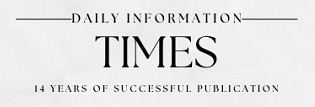ISLAMABAD, April 11: Pakistan on Monday decided to surrender 10% of the government’s Hajj quota to Saudi Arabia and approved the provision of additional $163 million for financing the pilgrimage after it could not succeed in plans to ease the burden on the country’s thin foreign exchange reserves through outsourcing the official quota.
The Economic Coordination Committee (ECC) of the cabinet changed its month-old decision, which required half of the intending pilgrims to arrange foreign currency from abroad owing to the alarmingly low official foreign exchange reserves.
ECC, after discussion, approved the arrangement and modalities for the Hajj Scheme 2023 and decided that all the received applications under the regular Hajj scheme, 72,869 in total, would be declared successful without balloting, according to the finance ministry.
ECC also approved an additional financing requirement of $163 million in foreign exchange for this year’s Hajj.
With the fresh approval, the government will provide $213 million to finance Hajj expenses, which is far lower than what it would have provided under normal economic conditions in the country.
The Hajj Policy 2023 required that the Hajj quota of 179,210 for Pakistan would be distributed equally between the government and private schemes.
Under the regular Hajj scheme, about 89,605 pilgrims were supposed to go on the pilgrimage. In order to lessen the burden on foreign exchange market, the government set aside 44,802 applications that would be financed by arranging foreign currency from abroad.
ECC was informed that contrary to the hope of receiving 44,802 sponsorships, less than 8,000 got funding from abroad. As a result, the government could not get $194 million from abroad to finance the Hajj expenses.
The cabinet had instructed the finance ministry to provide $90 million and the remaining $194 million for government quota had to come from abroad.
Under the regular government scheme, 72,869 applications had been received against 44,190 seats.
The last date for submitting applications under the sponsorship scheme was April 7 but the Ministry of Religious Affairs expected less than 8,000 applications against 44,190 seats.
Because of the poor response to the outsourcing scheme, the ECC decided that the surplus quota would be surrendered to Saudi Arabia. The situation arose due to the government’s inability to provide foreign exchange to the intending pilgrims.
As a result, based on estimates of the Ministry of Religious Affairs, at least 8,800 pilgrims, or nearly 10%, under the government quota cannot perform Hajj this year.
Last month, the government had increased Hajj expenses to Rs1.175 million per pilgrim, a surge of 68% over last year.
ECC had been informed in March that the sponsorship scheme of the government’s Hajj quota would generate about $194 million and the private Hajj scheme would fetch more than $250 million, depending on the cost of packages and applications received, taking the total outsourced funds to $444 million.
The sponsorship scheme was expected to secure foreign exchange cover for the regular scheme as well.
The religious affairs ministry had decided in consultation with the Finance Division that the remaining quota of the sponsorship scheme would be shifted to the regular scheme and thereby all applicants, ie 72,869 (against 44,190 seats), be declared successful without balloting.
Resultantly, 28,679 seats of the sponsorship scheme were required to be utilised through the regular scheme.
The ministry needs a net $213 million for Hajj 2023, of which $50 million has already been released and the remaining $163 million is required from the Finance Division.




No comment